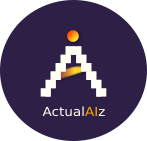In my experience (restricted to applying to Computer Science graduate programs, particularly within the top 100 universities), I found that most PhD programs have the GRE as either optional or not required. For MS programs, while a few still required the GRE when I applied for Fall 2023, the majority had it listed as optional.
As for whether it’s worth the effort to take the GRE, it can be beneficial to have a strong GRE score, especially if you need to compensate for a lower GPA. However, the decision ultimately depends on the specific requirements and expectations of the programs you’re targeting.
